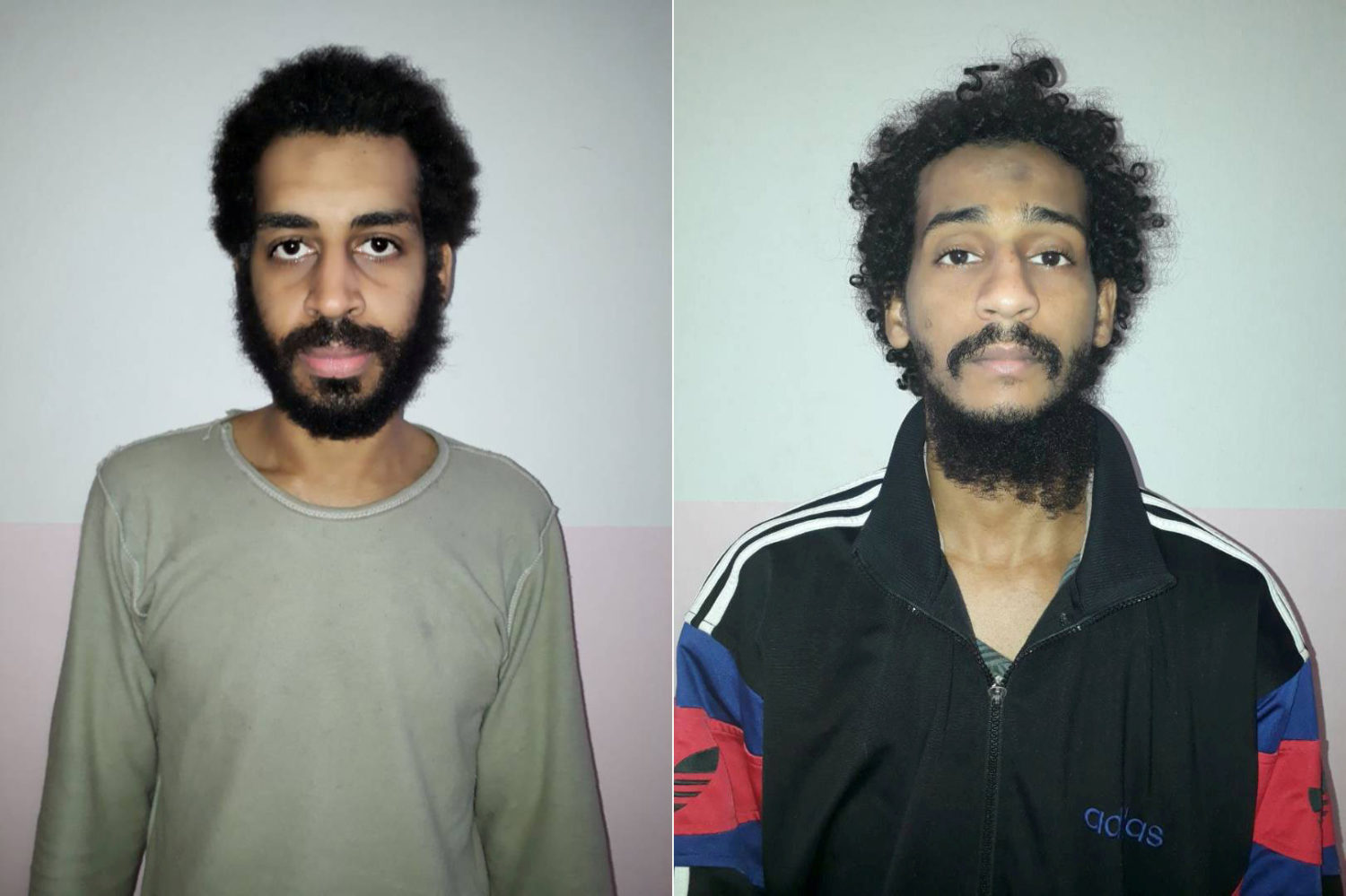
LONDON (Reuters) – Britain’s Supreme Court on Wednesday lifted a bar which prevented the government from giving evidence to U.S. authorities about an alleged Islamic State execution squad, nicknamed “the Beatles”, after reassurances were given that the men would not face the death penalty.
The U.S. Department of Justice is seeking the extradition of Britons Alexanda Kotey and El Shafee Elsheikh, who are accused of the killing and torture of Western hostages in Syria.
U.S. Attorney General William Barr said last week that U.S. prosecutors would not seek the death penalty against the men or carry out executions if they were imposed, an issue which had been a stumbling block for Britain handing over captured militants.
In March, Britain’s Supreme Court had ruled that data protection laws meant Britain could not provide material to the United States or other foreign countries in cases which could lead to a death penalty. That decision followed legal action brought by Elsheikh’s mother, Maha El Gizouli.
The British courts imposed a block on the transfer of evidence while her case was ongoing. But the Supreme Court said it had released an order on Wednesday which formally ended El Gizouli’s action and thus ended the legal prohibition.
“The order concludes the proceedings in the Supreme Court, which means that the stay or the stop on providing material to the U.S. government is removed,” a court spokeswoman said.
There was no immediate response from Britain’s Home Office (interior ministry).
Kotey and Elsheikh are being held by the U.S. military in an unidentified overseas location after they were captured in 2019 but Barr said it was becoming untenable to continue to hold them.
The pair were members of a four-strong Islamic State unit that was known as the Beatles because they were English speakers.
They are alleged to have detained or killed Western hostages, including U.S. journalists James Foley and Steven Sotloff and aid workers Kayla Mueller and Peter Kassig.
One member, Mohammed Emwazi, known as “Jihadi John”, was believed to have been killed in a 2015 U.S.-British missile strike.
The U.S. Justice Department wants Britain to turn over evidence it has on Kotey and Elsheikh to allow them to be tried in the United States.
Barr had said if Britain did not turn over the material by Oct. 15, the United States would turn over the men for prosecution in the Iraqi justice system.
(Reporting by Michael Holden; Editing by Angus MacSwan)


